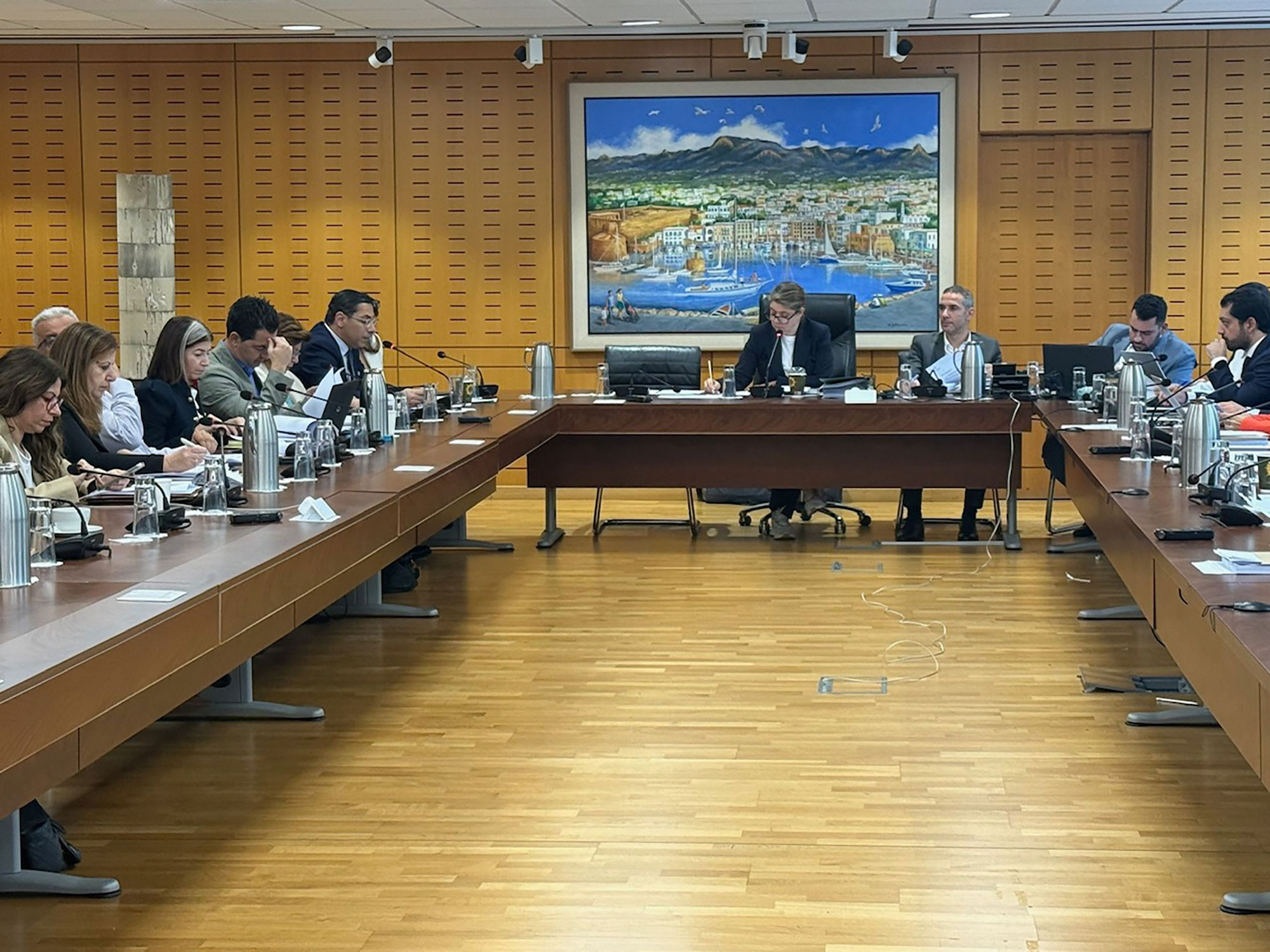A very different Turkey now stands before Cyprus compared with previous years, Foreign Minister Constantinos Kombos said on Friday, warning that Cyprus faces an existential threat that the government addresses daily.
Presenting his ministry’s budget to the House finance committee, Kombos noted that Turkey is the 11th biggest exporter of weapons globally and the ninth-largest importer.
In the drone sector, he said, Turkish companies control 60 per cent of the global market in certain categories.
Cyprus, he added, is working “to highlight our own added value.”
The ministry’s budget for 2026 stands at €131,734,795, an increase of 28 per cent since 2023. Binding expenditure accounts for €112.4 million, or 85.3 per cent of the total, while non-binding expenditure stands at €19.3 million, of which €8.7 million covers operational and diplomatic mission costs.
Referring to the Cyprus problem, Kombos said the change in leadership in the north had altered the landscape.
The Republic of Cyprus, he said, is working toward the resumption of substantive settlement talks. “We are waiting for [UN envoy Maria Angela] Holguin and we are ready to begin substantive dialogue as soon as possible,” he said.
Kombos told MPs that the ministry’s top foreign policy priority is safeguarding the Republic of Cyprus, particularly by countering Turkish efforts to undermine it in international organisations and bilateral relations.
He added that government efforts had created “new mobility” on the Cyprus issue, which would intensify in the aim of restarting negotiations.
He also highlighted efforts to strengthen ties with France, the UK, the US and states in the region. Relations with African countries are being expanded, supported by a new department within the ministry.
Answering MPs’ questions, Kombos said a roadmap had been drafted for EU–Turkey relations, regardless of Turkey’s stalled accession course.
He noted, for example, that Turkey’s alignment with EU foreign and defence policy had fallen from 5 per cent to 4 per cent – “a tragically low percentage for a candidate country”.
Turkey is also seeking to join EU defence bodies such as Safe, where an application is pending. However, Kombos said Turkey must meet specific preconditions, including refraining from threatening the vital interests of any member state.
“Our position is clear that Turkey cannot proceed,” Kombos stressed.
In any case, joining Safe commanded unanimity among member states and any one state could veto membership of the programme, he added.
Speaking to the press after the meeting, Kombos said the cooperation between Cyprus, Greece and Israel plus the United States had been revitalised after a meeting on Thursday in Athens, which Kombos said was “an important development”, especially since a new meeting had been scheduled.
The relationship between Cyprus and Greece, he added, remained strong on all levels and on Wednesday an intergovernmental conference will be held in Athens.
He acknowledged that the interconnector project had caused some friction between the two countries, but said both sides were committed to resolving the issues.
Kombos also referred to Cyprus’ role in the Gaza peace process, saying the country can contribute to six of the 20 points outlined in the US peace plan.
Cyprus and the US are also working toward Cyprus joining the visa waiver programme, with technical evaluation completed.
The government, Kombos said, was also busy working on its accession to the Schengen area, where “a huge part of the ground” has already been covered.
“We want a positive technical evaluation by December,” Kombos said, admitting that this was neither easy nor simple.
Kombos also said Cyprus was utilising all diplomatic tools it had at its disposal to reach more countries with which it wished to establish relations, through scholarships and the funding of humanitarian and development programmes.
The cornerstone of foreign policy, he added, remained the solution of the Cyprus problem and that next year’s priorities included the successful assumption of the EU rotating presidency as of January, which could serve as a useful diplomatic chapter beyond the six-month EU presidency.
Commenting on the presentation, Disy MP Harris Georgiades expressed satisfaction with the government’s foreign policy.
Akel MP Yiorgos Loukaides said it was one-dimensional and overly western-oriented. Diko MP Christiana Erotokritou said the party welcomed the more visible diplomatic footprint.
Edek MP Marinos Sizopoulos said it was unfortunate that the foreign ministry had the lowest budget of all ministries, while independent MP Alexandra Attalides questioned why the ministry had not requested a larger budget to enhance its work abroad.






Click here to change your cookie preferences